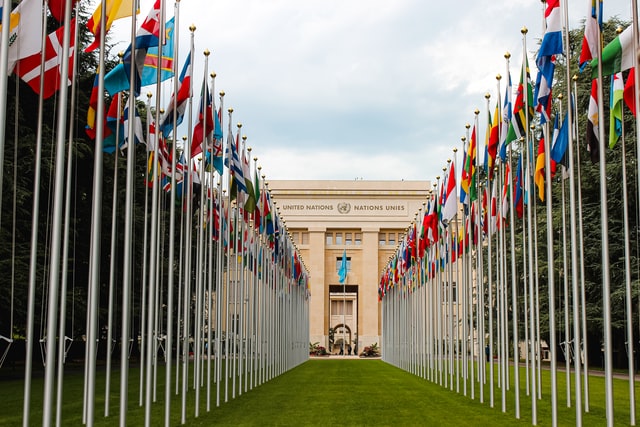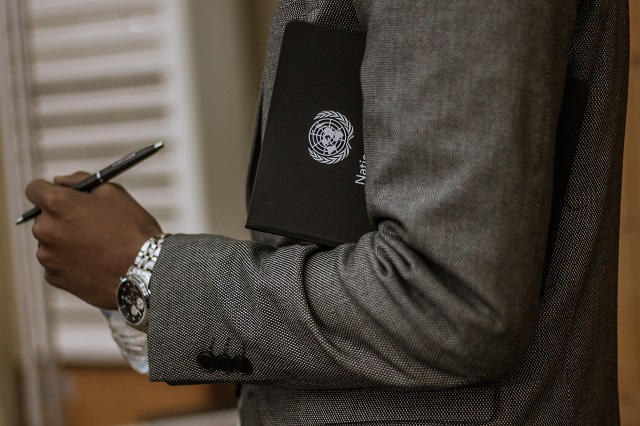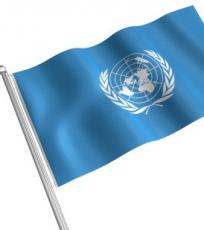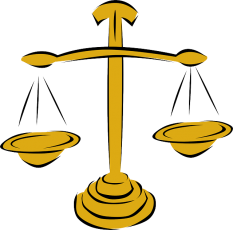UN rapporteur calls for feedback on custody cases and violence against women and children
Thu 17 Nov 2022
The UN Special Rapporteur on violence against women and girls is calling for inputs to inform a report on custody cases, violence against women and violence against children. The closing date to reply is 15 December 2022.

UN rapporteur call for inputs
*Update: The UN Special Rapporteur's final report, A/HRC/53/36: Custody, violence against women and violence against children, was published in April 2023.
The UN Special Rapporteur on violence against women and girls, its causes and consequences has issued a call for inputs on custody cases, violence against women and violence against children.
The purpose is:
"To inform the Special Rapporteur on violence against women and girls’ report on the nexus between custody and guardianship cases, violence against women and violence against children, with a focus on the abuse of the concept of “parental alienation” and related or similar concepts."
The closing date to submit is 15 December 2022.
The goal of the report is:
"...to examine the ways in which family courts in different world regions refer to parental alienation, or similar concepts, in custody cases and how this may lead to double victimisation of victims of domestic violence [and] abuse. It also aims to document the many ways in which family courts ignore the history and existence of domestic and family violence and abuse in the context of custody cases, as well as their grave consequences on mothers and their children."
The UN special rapporteur is inviting states, national human rights institutions, civil society actors, international organisations, academics, and other stakeholders to provide information. This includes non-government organisations and advocates.
Submissions are limited to 2000 words. There are 9 specific areas that feedback is invited on:
"1. The different manifestations or specific types of domestic and intimate partner violence experienced by women and children, including the use of “parental alienation” and related concepts in child custody and access cases. Please also include a description of the different forms of violence that may be experienced by the mother and child as well as fundamental human rights violations, where relevant.
2. The factors behind the increased number of allegations of parental alienation cases in custody battles and/or disputes involving allegations of domestic violence and abuse against women, and its differentiated impact on specific groups of women and children.
3. The way in which different groups of women and children experience this phenomenon differently based on any intersecting elements such as age, sex, gender, race, ethnicity, legal residence, religious or political belief or other considerations and the factors that contribute to these situations.
4. The role that professionals play, including welfare workers, child protection services, guardian ad-litem, psychologists, psychiatrists, and how they are regulated in any way as expert witnesses.
5. The consequences of the disregard for the history of domestic violence and abuse and intimate partner violence or the penalising of such allegations in custody cases on the human rights of both the mother and the child, and the interrelationship between these rights.
6. The challenges in collecting disaggregated data on courts’ practices concerning custody cases, the areas/sectors for which data is particularly lacking and the reasons for such challenges.
7. The good practices, strategies adopted by different organs of the State or other non-State actors, at local, national, regional, or international level to improve the due consideration of domestic and family violence, including intimate partner violence against women and abuse of children in determining child custody, as well as in providing remedies and redress for victims/survivors.
8. Recommendations for preventing the inadequate consideration of a history of domestic violence and abuse and gender stereotyping in custody cases to restore the human rights of mothers and their children, as well as ensure that survivors/victims are effectively protected and assisted.
9. Any other issue of relevance that are vital for consideration but that may not have been mentioned in this call for inputs."
Feedback can be submitted by email to hrc-sr-vaw@un.org.
Update: The UN Special Rapporteur issued a Statement on domestic violence and custody rights delivered to the European Parliament, 24 January 2023 saying "My mandate and other regional and international human rights mechanisms have found the lack of attention to partner and child violence in custody arrangements to be a feature in a number of jurisdictions in the EU, but also worldwide, hence the reason I am dedicating my next report to the Human Rights Council in June 2023 on this very issue. The report will also outline a number of recommendations."
Update: The Backbone Collective has published their submission to the call for inputs, New Zealand Family Court’s response to violence against women and children A submission from The Backbone Collective to the United Nations Special Rapporteur on Violence Against Women December 2022.
The Family Violence Death Review Committee has also published their submission Input for the report of the Special Rapporteur on Violence Against Women and Girls on violence against women and children in custody cases (2022).
Background for the call for inputs
The call for inputs provides more detailed background, stating "...not enough attention is given to the interconnections between domestic violence and abuse and issues of child custody and parental relations."
It noted that a platform of independent expert mechanisms on the elimination of discrimination and violence against women issued a statement in 2019, Intimate partner violence against women is an essential factor in the determination of child custody. The statement raised concerns about patterns across jurisdictions globally that ignore women's experiences of intimate partner violence (IPV) in child custody cases. Since the statement was issued, the Special Rapporteur has received reports globally confirming these issues and further that mothers have been penalised for disclosing experiences of violence by law enforcement and/or the judiciary responsible for determining custody cases.
The Rapporteur highlights that family courts in several countries often dismiss a history of violence and abuse, as 'parental alienation.' She goes on to say:
"Although these concepts lack a universal clinical or scientific definition, emerging patterns across various jurisdictions of the world indicate courts worldwide are using the concept of “parental alienation” or similar concepts explicitly or are allowing for its instrumentalization. The vast majority of those accused of ‘alienating’ their child while alleging abuse are women. Consequently, many women victims of violence and abuse face double victimization as they are punished for alleging abuse, including by losing custody or at times being imprisoned. Children who are victims of violence and abuse by a parent (in many cases the father) often continue to be subjected to such violence and abuse, against themselves and/or the other parent (in most cases the mother) post-separation, through imposed contact with the abusive parent. These dynamics often allow parents to be intimidated, coerced or forced by their abusive ex-partners and pressured by the courts to withdraw their allegations of abuse or to agree to a specific custody arrangement. In many instances, when given the risk of losing contact with their children and the high impunity the violence committed by their partner, women end up withdrawing their allegations or not reporting at all. According to experts, in many cases, the perpetrators of violence have deliberately inflicted violence on their children as a continuation of the violence inflicted on their partner who is the parent of their children and therefore a continuation of the attempt and process of controlling the target (i.e. the mother)."
She further notes that the "regular and widespread dismissal of intimate partner violence history and incidents by family courts" can be a result of "harmful gender stereotypes and discriminatory gender bias among family law judges." And she further writes:
"A very powerful bias, shared by many welfare and judicial systems, is that the right of a father to maintain contact with his children should override any other consideration. This is often justified with reference to the “the best interest of the child”, so that it is argued that the child’s best interest is to maintain contact with their father under all circumstances, even if the father has been abusive towards the mother or the child."
The Rapporteur then details the international obligations under the UN Convention on the Elimination of All Forms of Discrimination Against Women (CEDAW) and UN Convention on the Rights of the Child, and calls for action from the UN Committee on the Elimination of Discrimination Against Women.
More information
For more information on the intersection of IPV and child care and protection in Aotearoa New Zealand see:
- Six reasons why we cannot be effective with either intimate partner violence or child abuse and neglect unless we address both together (2017), a position statement from the Family Violence Death Review Committee, drawing on their 5th report
- The Backbone Collective's report on New Zealand’s Sixth Periodic report to United Nations Committee on the Rights of the Child 93rd Session (2022)
- Reports from the Backbone Collective including: Report Two - Out of the frying pan and into the fire: women's experiences of the New Zealand Family Court (2017) and Report Five - Seen And Not Heard: Children In The Family Court - Force (2017)
- NZFVC Issues Paper 4, Policy and practice implications: Child maltreatment, intimate partner violence and parenting (2013)
- NZFVC Issues Paper 3, Understanding connections and relationships: Child maltreatment, intimate partner violence and parenting (2013)
For more information about parental alienation see
- The journal article ‘It’s Not OK’, but ‘It’ never happened: parental alienation accusations undermine children’s safety in the New Zealand Family Court (2020) by Deborah Mackenzie, Ruth Herbert and Neville Robertson.
- The journal article The affective burden of separated mothers in PA(S) inflected custody law systems : a New Zealand case study (2020) by Vivienne Elizabeth.
- Video and resources from our 2018 seminar "Parental alienation” and family courts: A conversation on research and practice
- The Newsroom article from Catriona MacLennan on Family Court using discredited US theory (2017).
For more research and reports, search our library for parental alienation or search our library using the quick topic searches care and protection or custody/contact/access.
Related news
Manatū Wāhine | Ministry for Women is inviting expressions of interest from individuals, academics, and/or representatives of non-government organisations (NGO) to be the NGO delegate on the official New Zealand Government delegation to the 67th session of the Commission on the Status of Women. The Commission on the Status of Women (CSW) is the highest-level international forum on gender equality and women’s empowerment. CSW67 is being held from 6 to 17 March 2023 at the United Nations Headquarters in New York. The closing date to submit an expression of interest is 30 November 2022.
The UN Committee on the Elimination of Discrimination against Women has released the list of issues and questions prior to the NZ Government's submission of the ninth periodic report of New Zealand. The Government's response to these issues and questions will form the 9th periodic report on New Zealand's implementation of CEDAW. This report is due to be submitted by the Government in July 2023. For more information see the Ministry for Women's information on CEDAW reporting.
Related media
Family Court judge rules child should visit killer father behind bars, NZ Herald, 27.04.2023
Family Court failings laid bare in research series, University of Auckland media release, 22.11.2022
Petition calls to end practice of child uplifts in custody battles, One News, 06.11.2022
Abuse victim Mrs P a step closer to appealing 'excoriating' court decision, Stuff, 31.10.2022
Inquiry urged into ‘parental alienation’ court experts, The Guardian [UK], 19.06.2022
Complaining about a Family Court judge isn't safe - advocate, RNZ, 01.09.2022
'They can't win': How an old idea about women puts children in danger, Stuff, 20.03.2021
Waipareira challenges parental alienation uplift, Waatea News, 27.01.2021
Image: Leah Kelley on Pexels








